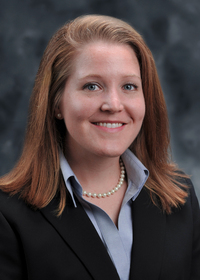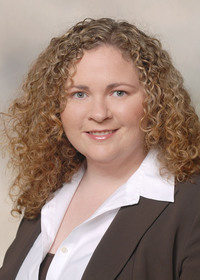Agritourism and COVID-19: Questions and Answers
Agricultural producers who use agritourism to generate additional revenue have more questions than answers about what their season will look like this summer and fall. This publication is meant to provide a brief update on current available information and recommendations. It also offers some strategies for assessing and adjusting business models and financial decisions for the upcoming season. And perhaps most importantly, you will find several resources and websites to help you respond to today’s changing business environment.
It is important to understand that this is a rapidly changing situation and that regulations and guidance may change based on new information. Routinely check with the Mississippi State Department of Health (MSDH), Centers for Disease Control and Prevention (CDC), Mississippi Department of Agriculture and Commerce (MDAC), and your local government representatives for any changes to agritourism regulations. Always follow the most recent federal, state, and local regulations.
Below are answers to common questions about COVID-19 safety for producers who also participate in agritourism activities.
Will large tour groups be allowed to attend farms?
Continue to monitor regulations from state and local governments. These websites are currently providing updates and guidelines:
- Mississippi Secretary of State https://www.sos.ms.gov/Education-Publications/Pages/Executive-Orders.aspx
- Mississippi State Department of Health https://msdh.ms.gov/msdhsite/_static/14,21866,420.html
- CDC Decision Tool https://www.cdc.gov/coronavirus/2019-ncov/community/schools-childcare/youth-programs-decision-tool.html
What steps can I take to reduce risks?
- Consult your attorney and insurance agent to review your farm’s policies and procedures.
- Post signs with health and safety recommendations and guidelines throughout your farm. MSU Extension has developed signs that can be downloaded for printing. Find PDFs here: http://extension.msstate.edu/publications/minimizing-risk-when-operating-farmers-market.
- Post signs asking customers not to enter if they are or have recently been sick. Arrange for a temperature-taking station if desired. See Minimizing Risk when Operating a Farmers Market for more health and safety guidelines: http://extension.msstate.edu/publications/minimizing-risk-when-operating-farmers-market.
- Establish capacity limits for safety.
- Incorporate social distancing into all on-farm activities:
- Stay 6 feet from others.
- Avoid large group activities.
- Control entrances and exits to reduce crowding and limit visitors.
- Eliminate activities that require close contact or high-touch surfaces.
- Use arrows and ropes to guide visitors through spaces while maintaining social distance.
- Encourage visitors to wear masks. Offer masks for sale if visitors do not have their own.
- Provide handwashing stations and hand sanitizer.
What steps can I take to provide an experience or product while minimizing contact?
Note: These suggestions apply only if agritourism operations are allowed to open and small groups are allowed.
- Provide updates to prospective visitors through your website and social media channels. Include policies, opening times, and visiting procedures.
- Consider requiring pre-purchased online tickets for specific visitation time frames. There are multiple websites and apps that you can use for online booking and scheduling.
Two examples are Farmpass (https://www.farmpass.com/scheduled-event-ticketing) and Eventbrite (https://www.eventbrite.com). Find reviews of software at https://www.capterra.com.
- Consider offering virtual tours through your website and/or social media. Farms are offering virtual tastings, culinary ideas, birding tours, and animal interactions.
- Offer the option to rent a specific time period at the farm for private groups (family outings, corporate meetings, or small group events). Consider requiring a minimum amount that visitors must spend in order for the event to be exclusive. Include charges for thoroughly cleaning the facility afterward.
- Use innovation and creativity to diversify your farm. For example, if you usually host a sunflower festival, there are multiple possibilities to diversify this resource if small groups are allowed. Here are some examples:
- Create a sunflower maze and minimize the number of people in the maze.
- Sell sunflower bouquets.
- Allow photographers to schedule times to rent the space for photos.
- Offer a small-group floral design workshop.
- Host a fee-based dove hunt at the end of the season.
- See https://www.naturalresources.msstate.edu/ for more information.
- Consider curbside and delivery options for products and/or activities.
- Example: If you have a farm store or U-pick operation, offer pre-packaged farm boxes that include recipes.
- Consider offering family education and entertainment kits. Provide the kits curbside and then set up an online workshop or demonstration.
- Examples: pumpkin decorating, floral design, corn art, cooking demonstration
What can I do to minimize my legal and financial risk?
- Set up an appointment with your insurance agent and attorney to see if you need additional coverage or to take additional precautions.
- Create a cash flow statement based on variable costs and revenue changes that may occur. Contact the MSU Center for Government and Community Development at (662) 325-3141 for a sample cash flow model.
- The State of Mississippi could mandate a reduction in the number of visitors to the farm at one time. Consider offering a more exclusive experience to smaller groups if this becomes necessary.
- Create a realistic schedule for opening and closing that allows time for disinfecting and for people to safely enter and exit the farm.
- Consider requiring reservations to control crowds. Operations in other states, as well as businesses such as gyms and hair salons in Mississippi, are currently doing this.
This publication is intended to provide accurate and authoritative information regarding the organization and operation of agritourism and related businesses and events in Mississippi. It is distributed with the understanding that the authors and the MSU Extension Center for Government and Community Development are not engaged in rendering legal, accounting, or other professional services. If you need legal advice or other expert assistance, please contact the Mississippi Attorney General’s office, the Mississippi Secretary of State’s office, or a competent professional.
References and Resources
Agriculture: A Guide for U-Pick Producers/Agritourism Sites during the COVID-19 Pandemic. Purdue University Extension. https://extension.purdue.edu/article/37222
COVID-19 and Agritourism in Maryland. University of Maryland Extension.
https://extension.umd.edu/learn/covid-19-and-agritourism-maryland
Industry Trends. International Agritourism Association. https://nafdma.com/Trends
Guidance and Best Practices for Michigan Farm Markets and Agritourism Operations during the COVID-19 Pandemic. Michigan Agritourism Association. https://www.michiganfarmfun.com/pandemic.asp
COVID-19 Resources. Michigan Farmers Market Association. http://mifma.org/covid-19-resources/
COVID-19 Resources. Rutgers University New Jersey Agricultural Experiment Station.
https://njaes.rutgers.edu/covid-19/
COVID-19 FAQ for U-Pick Farms: Steps for Farm Managers. University of Florida Extension.
https://edis.ifas.ufl.edu/fs338
U-Pick and Farm Market Options for Small Growers in the Age of COVID-19. University of Michigan Extension. https://www.youtube.com/watch?v=8nabCd1f8Pk&feature=youtu.be
The information given here is for educational purposes only. References to commercial products, trade names, or suppliers are made with the understanding that no endorsement is implied and that no discrimination against other products or suppliers is intended.
M2366 (POD-08-20)
By Rachael Carter, PhD, Extension Instructor, Center for Government and Community Development; Becky Smith, PhD, Assistant Extension Professor, Agricultural Economics; Courtney Crist, PhD, Assistant Extension Professor, Food Science, Nutrition, and Health Promotion; and William Poindexter, Extension Associate, Center for Government and Community Development.
Copyright 2020 by Mississippi State University. All rights reserved. This publication may be copied and distributed without alteration for nonprofit
educational purposes provided that credit is given to the Mississippi State University Extension Service.
Produced by Agricultural Communications.
Mississippi State University is an equal opportunity institution. Discrimination in university employment, programs, or activities based on race, color, ethnicity, sex, pregnancy, religion, national origin, disability, age, sexual orientation, genetic information, status as a U.S. veteran, or any other status protected by applicable law is prohibited. Questions about equal opportunity programs or compliance should be directed to the Office of Compliance and Integrity, 56 Morgan Avenue, P.O. 6044, Mississippi State, MS 39762, (662) 325-5839.
Extension Service of Mississippi State University, cooperating with U.S. Department of Agriculture. Published in furtherance of Acts of Congress, May 8 and June 30, 1914. GARY B. JACKSON, Director
The Mississippi State University Extension Service is working to ensure all web content is accessible to all users. If you need assistance accessing any of our content, please email the webteam or call 662-325-2262.










